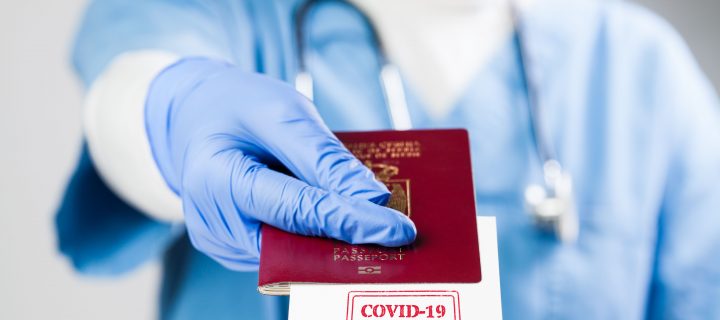Antibody tests are not yet reliable enough to be used as proof you cannot get COVID-19 again.
On April 24, 2020 the WHO published a statement on their website with regards to the use of “immunity passports” during the pandemic. To date, the organization is standing firm in their belief that the documents are not a good idea.
“At this point in the pandemic, there is not enough evidence about the effectiveness of antibody-mediated immunity to guarantee the accuracy of an “immunity passport” or “risk-free certificate,” the organization concluded.
What is the problem with the whole idea? Immunity passports are a document issued to a person, stating they are immune to a particular disease. The paper or digital file provides official proof the bearer is no longer susceptible to contracting the illness in question. But we are only beginning to understand how SARS-CoV-2, the virus causing COVID-19, functions. Because of this, officials say they are not confident in issuing the passports. There is not enough evidence to show you cannot get the novel coronavirus twice.
Related: Coronavirus vs Allergies: Know the Difference
There are many issues. The WHO is worried people who have already fallen sick with COVID-19, and who have received test results indicating they are no longer sick, may stop following public health advice. Such people may feel they no longer need to practice social distancing. They may not wear a mask when going out in public. Since medical officials are not certain whether or not you can in fact contract the coronavirus twice, giving people immunity passports may provide a false sense of security. This could result in risky behavior and increased infection.
There also exists trouble with false positives and negatives. Immunodiagnostic tests are not always exact. According to the WHO, the tests do sometimes inaccurately label people who have been infected as negative. Conversely, and those who are not sick can get a false positive. Sometimes the tests say someone has COVID-19 when in fact they do not, and vice versa.
This can happen because the tests do not always accurately distinguish between a past coronavirus infection, and one caused by SARS-CoV-2. There are six human coronaviruses. Four of these cause the common cold, and the other two cause Middle East Respiratory Syndrome (MERS) and Severe Acute Respiratory Syndrome (SARS). People who have had one of these illnesses in the past, which is just about everybody when you include the common cold, may produce antibodies that cross-react with those produced in response to COVID-19.
Related: Vitamin D and COVID-19: Getting Enough Matters
Lastly, some people fight off COVID-19 but do not produce strong antibodies in response. This presents a problem. It can happen in elderly people, and others with a weaker immune system. When this occurs, the person could be more susceptible to catching the novel coronavirus again. Other people who had a strong immune response to the virus, and produced a lot of antibodies in response to it could be less likely to get the illness twice. Those who had it but did not produce a lot of antibodies could be susceptible to getting the illness again. With all these discrepancies floating around, issuing immunity passports for COVID-19 could prove to be dicey.
But what about testing? Should we stop testing people altogether, if the results can turn out to be so skewed? No. The WHO says that it still supports these studies, as they can help us understand more about the virus. When enough people are tested, the studies provide statistics in percentages, and show overall trends which are needed to better understand the risk factors associated with falling sick with COVID-19. Can the test determine whether or not you can get the coronavirus again, however? Probably not.
photo credit: Cryptographer/Shutterstock.com












